from 0 review
10 Days 9 Nights
Daily Tour
20 people
___
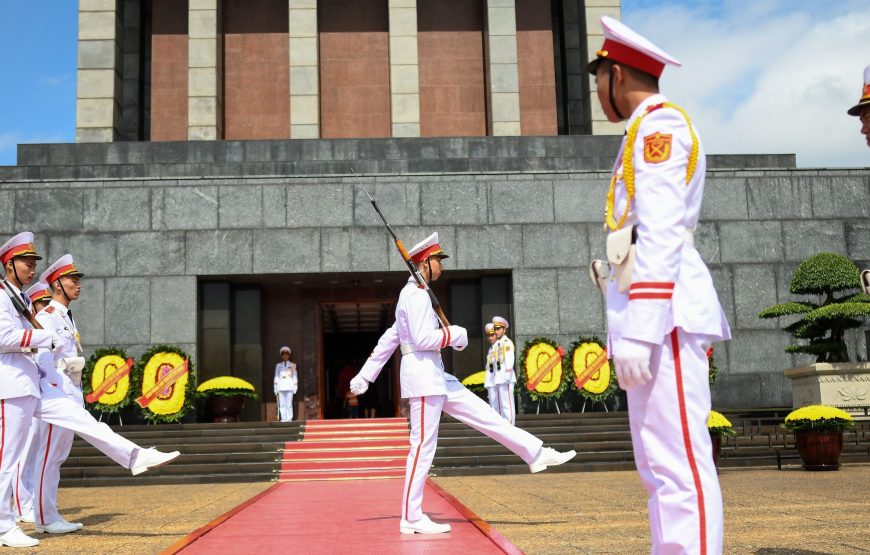
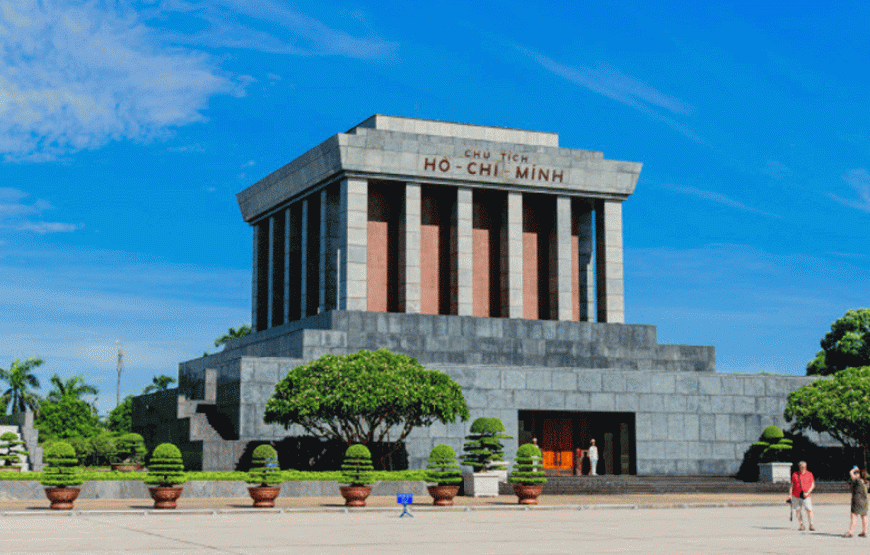
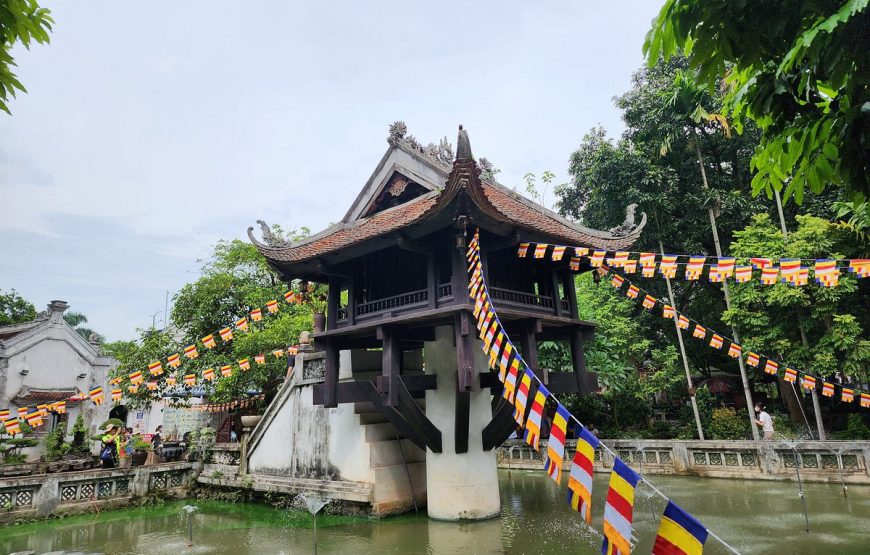
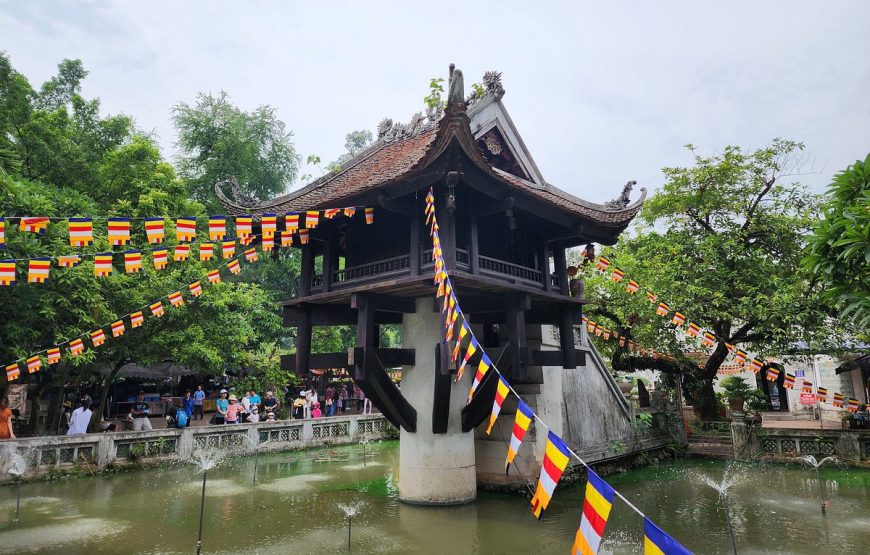
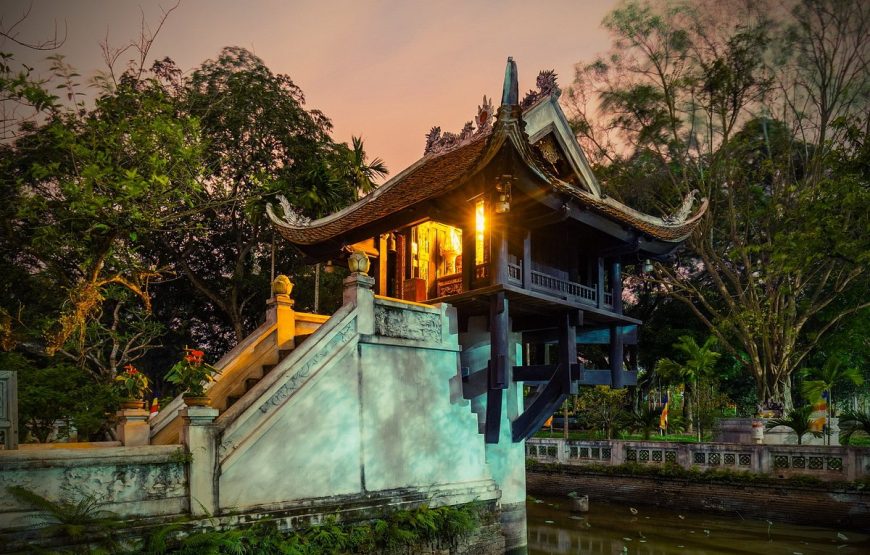

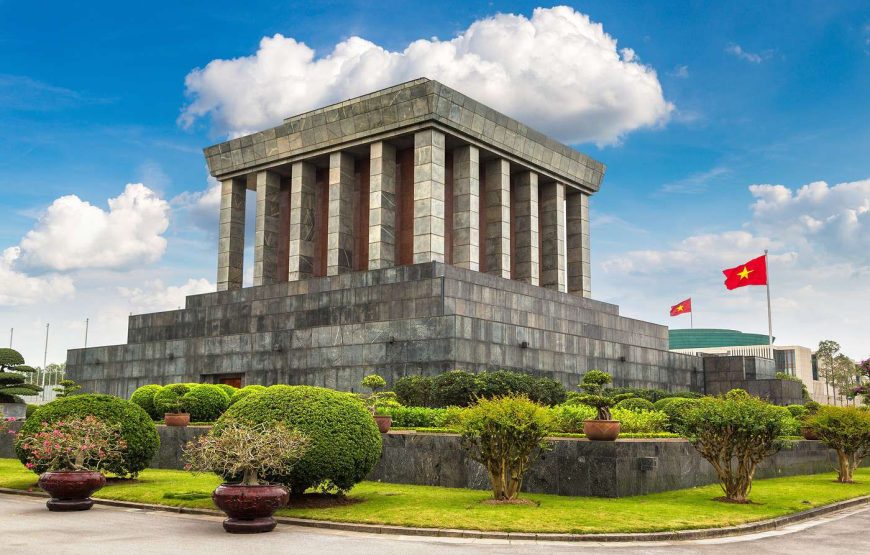


Vietnam is famous for natural landscapes like Ha Long Bay, refreshing Vietnamese cuisine, and its interesting colonial history. As a cultural South East Asian country, Vietnam is known for its thousands-year-old history and heritage. Most people who traveled to Vietnam will agree it is a magical country. The gleaming skyscrapers of the country’s booming cities have a singular kind of beauty that shouldn’t be overlooked, but the natural landscape is truly breathtaking. Vietnam is a melting pot of natural beauty and cultural diversity. The scenery ranges from jagged mountain peaks to lush green rice fields and even picture-perfect beaches.
Ho Chi Minh’s stilt house or Uncle Ho’s stilt house is one of the most popular historic sites in Hanoi for both Vietnamese and international visitors. It evokes memories of President Ho Chi Minh – the country’s great leader and helps people to understand more about the humble and simple life of Uncle Ho.
Ho Chi Minh’s stilt house was designed by architect Nguyen Van Ninh and built-in 1958 in a corner of the Presidential Palace’s gardens. It resembles the style of the traditional of Tay – Thai ethnic stilt houses in Viet Bac, where Uncle Ho lived before moving here. Viet Bac was the name of the northernmost region of Vietnam in the time of war against the French colonists (1945-1954). It consisted of 6 provinces: Cao Bang, Bac Kan, Lang Son, Ha Giang, Tuyen Quang, and Thai Nguyen.
This two-storey stilt house with a wooden tiled roof is so humble and simple. It measures 10.5m in length and 6.2m in width. The ground floor is an open space, with a long table, and wooden and bamboo chairs surrounded, where Ho Chi Minh usually worked in summer. It also served as the living room to welcome guests. The upper floor is divided into 2 small rooms by a bookcase: a working room and a bedroom. Each room is about 10sqm2 with some essential furnishings in the daily life of Ho Chi Minh.
Upon arrival in Hanoi, a warmest welcome then driver transfer guests to hotel for check in. Overnight in Hanoi
Breakfast=No Lunch=No Dinner=No
Transfer to visit city tour: visit/photo outside Ho Chi Minh Mausoleum (close on Monday, Friday &all afternoon), Ho Chi Minh Stilt House, One Pillar Pagoda. Continue visit to beautiful Tran Quoc Pagoda located on the shores of Lake West, then go around Hoan Kiem Lake (Restored Sword Lake) at the heart of Hanoi, you have the chance to stroll along The Huc Bridge - featuring classical Vietnamese designs that connects to a delightful island situated in the north part of the lake with Ngoc Son Temple. Then visit Temple Of Literature.
Breakfast=Yes Lunch=No Dinner=No
Breakfast at hotel
Depart for Ha Long Bay (200km ~ 4-hour drive) through the beautiful scenery of green rice fields, water buffalos and everyday Vietnamese village life in Red River Delta. The seaside city is famous with Ha Long Bay - a beautiful natural wonder in northern Viet Nam. One of the main attractions of Ha Long is the UNESCO Heritage. Arrive at Tuan Chau Island and check in at the cruise. A welcome drink is served on arrival before enjoying lunch on board with fresh seafood. A fantastic cruise in Halong Bay – a UNESCO World Heritage Site, passing through so many amazing islets such as Dinh Huong Island, Ga Choi Island, and Sail Island…. Dinner with fresh seafood Squid fishing or relax and chatting with your friends & family Overnight on board.
Breakfast=Yes Lunch=Yes Dinner=Yes
Light breakfast with tea, coffee, fruit, and cake is served Enjoy your fresh morning in the middle of the bay, the sun rises on Halong in the morning with Tai Chi exercise on the sundeck The wholesome brunch is served while the vessels cruises slowly through the magnificent rock formations and back toward port Enjoy the tranquil scenery as the boat meanders its way through the bay on the way back to Ha Long city, etc… Disembarkation & drive back to Hanoi.
Breakfast=Yes Lunch=No Dinner=No
After breakfast Fly into Phnom Penh transfer to hotel. the city that retains its traditional Khmer and colonial charm. French villas along tree-lined boulevards remind the visitor that the city was once considered the ‘pearl’ of Southeast Asia.
Breakfast=Yes Lunch=No Dinner=No
Visit the Royal Palace compound build in 1866 by the Predecessors of King Norodom, it is the most conspicuous feature and also one of impressive colorful Khmer-style Palaces. Nearside the Royal Palace is the Silver Pagoda (The Emerald Buddha temple), displays plenty of Buddha statues that were decorated and made by diamond, emerald, gold and silver. Travelers will proceed to visit Independence Monument which was constructed in 1954 after Cambodian took their country back from French colony, then visit the National Museum, the distinctive red building with a beautiful Khmer architecture was build in 1917 and contains more than 5000 art objects made of sandstone, bronze, silver, copper, wood and others.
Breakfast=Yes Lunch=No Dinner=No
Pick up time at 08h00am hotel lobby by local guide and driver then departure to visit Oudong was royal residence and Cambodia’s capital for more than 250 years. In 1866 King Norodom moved the capital to Phnom Penh. During Khmer Rouge Regime, Oudong royal court was extensively damaged along with the other temples, monuments and religious structures. Nowadays you can climb the hills and visit the temples and stupas containing the remains of several Khmer kings such as King Monivong and King Ang Duong. Restoration of damaged temples and religious monuments is still undergone with the funding and donation by international NGO. The summit of hills of Oudong offers a spectacular view of the surrounding countryside. Silversmiths Village is on the way back to Phnom Penh. Here you can watch the craftsmen making beautiful Khmer style silver crafts.
Breakfast=Yes Lunch=No Dinner=No
After breakfast drop to airport and fly at Wattay International
Airport and transfer to the hotel.
Breakfast=Yes Lunch=No Dinner=No
We start out tour by heading to the religious museums of Wat Sisaket and Ho Prakeo. We then drive to That Luang Stupa, the single most important monument in Laos. That Luang is the largest stupa in Laos andserves as the main symbolic stupa for all of Laos. It’s also our national symbol, a gathering place for our national Buddhism ceremony, and recognised throughout the world. In the afternoon, we make our way to Carol Cassidy, a workshop and gallery showcasing Lao textiles and natural dyemaking process from start to finish. We then drive out of town to the eccentric Buddha Park, built by a Lao man after studying in India, in order to teach following generations of Lao about religions around the world.
Breakfast=Yes Lunch=No Dinner=No
After breakfast at the hotel, we make our way to Carol Cassidy, a workshop and gallery showcasing Lao textiles and natural dye making process from start to finish. We then drive out of town to the eccentric Buddha Park, built by a Laoman after studying in India, in order to teach following generations of Laoab out religions around the world. Here we will discover many Buddhist and Hindu statues in traditional and modern styles.
One of them is the largest Reclining Buddhain Laos.
Breakfast=Yes Lunch=No Dinner=No
After breakfast transfer to airport.
Breakfast=Yes Lunch=No Dinner=No
Leave a reply